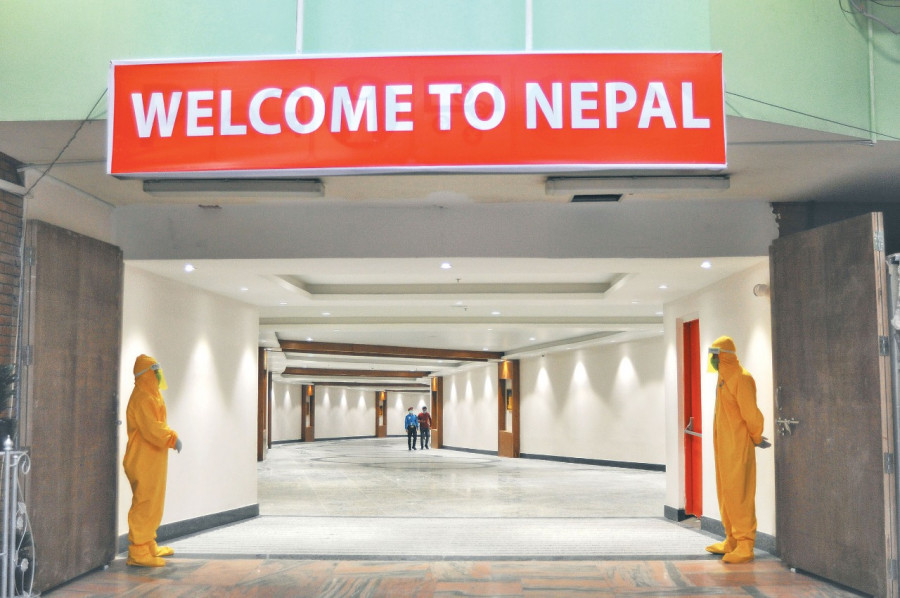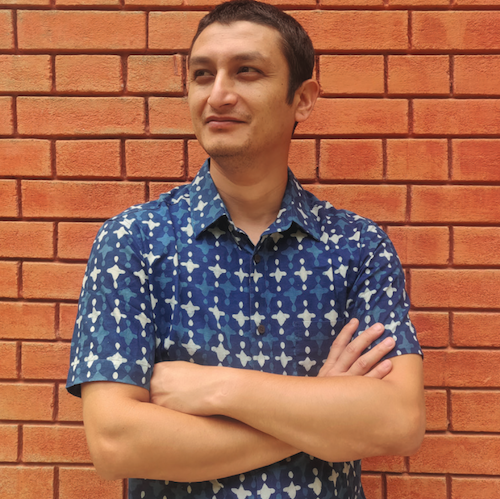Columns
Starting over again
There seems to be no end to either the pandemic or the government’s incompetent response.
Amish Raj Mulmi
Every morning, for the past five months, a tailorbird couple sits outside our window, their distinctive cheep-cheep-cheep call acting as our alarm clock. In these months, the couple has raised two sets of chicks. The first brood had three chicks, each a little ball of fluff, and I saw them one evening as they huddled close to each other in a jasmine bush as the parents rushed about trying to gather insects for them.
The second brood had two chicks, born sometime in the past month. The tailorbird sews leaves together to make a nest of brilliant craftsmanship, another of everyday nature’s wonders. But I am yet to see the nest in my garden, despite my many attempts. If the past five months have taught me anything, however, it is to be patient.
I was never a patient person to begin with, but the lockdown months forced me to be one. As days pass like clouds and months disappear into the ether, there is little else one can do. This pandemic is an extraordinary event; like a bad acid trip, it intensifies the questions we ask ourselves and makes our mind go places we don’t want it to. Covid-19 eats away at the foundations of our trust in others—friends, family, relatives. Before meeting them, we want to know, who else did they meet? Where did they go? Have they been wearing masks?
The virus also turns us selfish. How far should we go to keep ourselves and our families safe? We’ve thrown social niceties out the window. There is awkwardness all around if we meet someone. Do we hug? Take off our masks (the literal ones, too)? And should we be sitting here, in this cafe? Isn’t home safer?
Over the months, as Nepal’s response to Covid-19 falters under the weight of state incompetence, I see the disease closing in upon us. At first, it was a distant one—spatially and metaphorically. Things looked under control. Tests were being done; hospitals did not overflow. Cases rose, but the overall numbers didn’t look too bad. We grew accustomed to the smell of sanitisers; our hands soaked in the smell of soap. And our faces bore the marks of mask straps—but we were okay with it.
Then came the inexplicable decision to remove the lockdown. Just like that, the tap was turned on. Everybody seemed to forget that the virus isn’t one to follow state regulations. Things went back to normal: traffic jams, daily lives, etc. Experts argued the lockdown wasn’t a feasible solution, livelihoods had to be earned, businesses could close down.
All of this is true. But what now—when cities across the country are closing down again, and when our feeble healthcare system is beginning to get overwhelmed? What good is growth when survival is the answer?
The circle has begun to close in. Last month, we joked about a false alarm in our neighbourhood. Last week, a vendor tested positive. The other day, a friend said we—he meant people like us, who wear masks, sanitise ourselves all the time, wash our hands at every opportunity, who live in homes with open spaces—wouldn’t get it. He corrected himself immediately; of course it wasn’t true. Our privilege affords us space and perhaps a measure of safety. But if we’ve learnt anything over this year it is that the virus is a great equaliser.
As our cities return to living under a blanket of dread, we ask ourselves if we are doing enough. But the citizen has been compliant; she has been wearing a mask, and she has suffered the loss of livelihood and income with stoicism. But she has also followed orders—and if the order is to go to work, there is little she can do. The citizen is a puppet, strung along by a government that has fumbled its way as it diverted our attention with gods and maps.
All these months, I have desisted from critiquing our government’s pandemic response. I have said we need to be more patient, especially because more advanced health systems than ours—Italy, Sweden, the US, even India—have collapsed under the weight of cases. I have pointed out the futility of comparing mass testing in an advanced island-state like Singapore and a country like ours. And I have, like many still do, faulted the citizens for not following basic precautions.
But increasingly it is clear that our Covid-19 response is built upon the twin pillars of incompetence and abdication of responsibilities. We relied on donations for ventilators; we did not prepare enough beds; we reduced PCR testing at a time we should have increased them; we allowed mass transit of people into populated areas; we are not informing those who have tested positive on time; Nepalis are stuck abroad with little information about when they can return—the list is long.
What we have done is bring out a shoddily designed badge on which we spent Rs2 million, published a map that has done little except become an irritant, attempted to identify the birthplace of gods at a time when humans are dying and fought for power when a coherent response was needed.
Public health experts have cried themselves hoarse, but no, it’s time to change the carpets and buy new vehicles (turns out, there is plenty in the coffers when one needs it). Frontline workers like doctors and the police are testing positive every day. But no, we will assume the virus doesn’t move at night, and so we will issue prohibitory orders only for the night. And now that the excreta has hit the fan, we are now entering damage control by issuing a weeklong prohibitory order. If only the virus listened to official orders.
And so, I return to watching the tailorbirds stoically, and hope to find the nest soon. There isn’t much we can do, except keep ourselves safe as best as we can. Like the kings of yore, we hope that Pashupatinath will watch over us. After all, what can we expect the government to do?




 14.24°C Kathmandu
14.24°C Kathmandu















